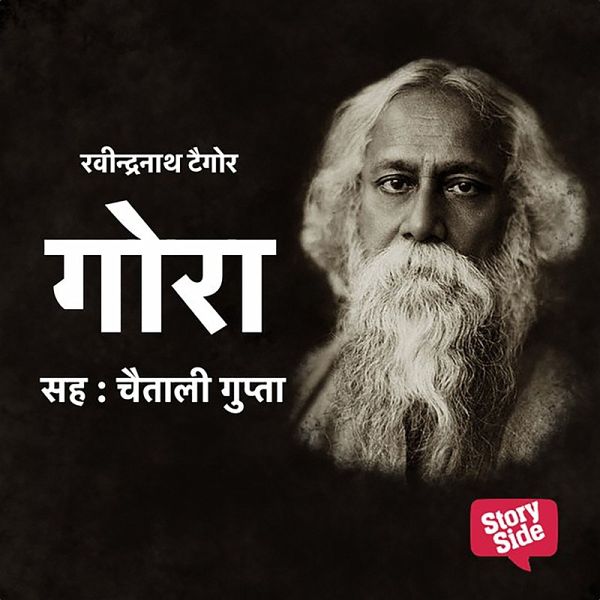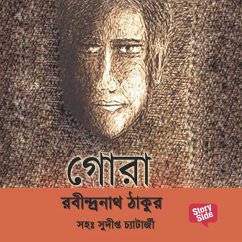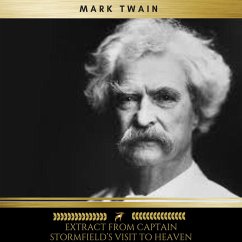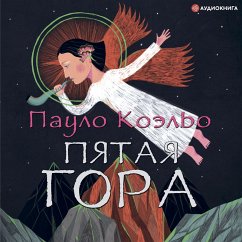
Gora (MP3-Download)
Ungekürzte Lesung. 1219 Min.
Sprecher: Gupta, Chaitali
Versandkostenfrei!
Sofort per Download lieferbar
22,99 €
inkl. MwSt.
Weitere Ausgaben:

PAYBACK Punkte
11 °P sammeln!
गोरा भारतीय मनीषा के आधुनिक महानायक रवीन्द्रनाथ ठाकुर ने 'गोरा' की रचना एक शताब्दी पहले की थी और यह उपन्यास भारतीय साहित्य की पिछली पूरी शताब्दी के भीतर मौजूद जीवन-रेखाओं के भीतरी परिदृश्य की सबसे प्रामाणिक पहचान बना रहा। वर्तमा...
गोरा भारतीय मनीषा के आधुनिक महानायक रवीन्द्रनाथ ठाकुर ने 'गोरा' की रचना एक शताब्दी पहले की थी और यह उपन्यास भारतीय साहित्य की पिछली पूरी शताब्दी के भीतर मौजूद जीवन-रेखाओं के भीतरी परिदृश्य की सबसे प्रामाणिक पहचान बना रहा। वर्तमान विश्व के तेजी से घूमते चक्र में जब एक बार फिर सभी महाद्वीपों के समाज इस प्राचीन राष्ट्र की ज्ञान-गरिमा, चिन्तन-परम्परा तथा विवेक पर आधारित नव-सृजन-शक्ति की ओर आशा भरी दृष्टि घुमा रहे हैं, तो 'गोरा' की ऊर्जस्वी चेतना की प्रासंगिकता नए सिरे से अपनी विश्वसनीयता अर्जित कर रही है। आज हम भारतीय साहित्य की परिकल्पना को लेकर जिस आत्म-संघर्ष से गुजर रहे हें, उसे रवीन्द्रनाथ के विचारों और उनके गोरा के सहारे प्रत्यक्ष करने का प्रयास किया जा सकता है। गोरा की भाषिक संरचना और इसकी सांस्कृतिक चेतना भारतीय साहित्य की अवधारणा के नितान्त अनुकूल हैं। इस उपन्यास में रवीन्द्रनाथ ने पश्चिम बंग की साधु बांग्ला, पूर्वी बांग्ला (वर्तमान बांग्लादेश) की बांगाल-भाषा, लोक में व्यवहृत बांग्ला के विविध रूपों, प्राचीन पारम्परीण शब्दों, सांस्कृतिक शब्दावली, नव-निर्मित शब्दावली आदि का समन्वय करके एक बहुत अर्थगर्भी कथा-भाषा का व्यवहार किया है। भौगोलिक शब्दावली के लोक प्रचलित रूप भी 'गोरा' की कथा-भाषा की सम्पत्ति हैं। इसी के साथ रवीन्द्रनाथ ने 'गोरा' में अपनी कविता और गीत पंक्तियों तथा बाउल गीतों व लोकगीतों की पंक्तियों का प्रयोग भी किया है। अनुवाद करते समय कथा-भाषा तथा प्रयोगों के इस वैशिष्ट्य को महत्त्व दिया गया है। 'गोरा' में कितने ही ऐसे विभिन्न कोटियों के शब्द और प्रयोग हैं, जिनके सांस्कृतिक, भौगोलिक, ऐतिहासिक और लोकजीवन के दैनिक प्रयोगों से जुड़े सन्दर्भों को जाने बिना 'गोरा' का मूल पाठ नहीं समझा जा सकता
Dieser Download kann aus rechtlichen Gründen nur mit Rechnungsadresse in A, D ausgeliefert werden.














